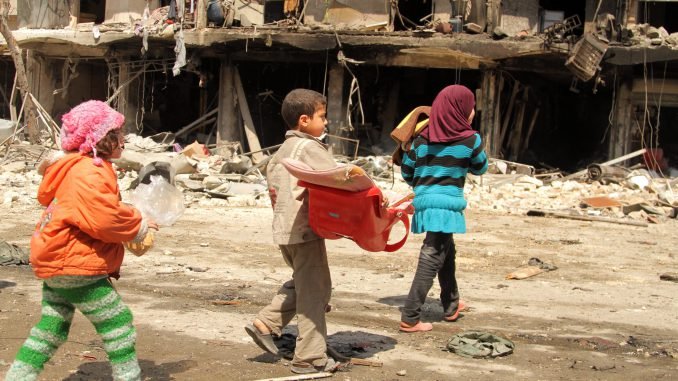
The refugee crisis is modifying policy priorities of the European Union which is shoring up its financial support for the countries from which migrants are currently fleeing to Europe. Over the two coming years, the European Commission is to spend up to EUR 10bn in order to relieve migrant flows, with separate funds envisaged for Syria and Africa.
Lithuania will contribute some EUR 100,000 to these funds. However, the country’s overall spending on development cooperation – assistance to the least affluent countries in the world – is only a third of what it pledged when joining the EU.
Despite colder weather, refugee flows to Europe have not abated and, according to data of the United Nations, actually continue to grow.
So far, the EU has failed to even manage migration. The European Commission has spoken about shifting priorities, focusing not just on protecting the EU’s external borders, but also providing assistance to the conflict-affected countries that refugees are fleeing. Hence the EUR 10bn from the union’s coffers it is ready to spend on solving the refugee crisis.
“There is an understanding that we must address the problems where they arise. Certainly, this is one of the most important political and diplomatic issues. There are positive signs that financial resources are coming, too,” according to EC spokeswoman Jolita Butkevičienė.
The EU is setting up two new funds, one to aid Syria and the other, its neighbours in the Middle East and countries in Africa. The goal is to have more Syrian refugees find asylum in neighbouring countries rather than attempt to make their way to Europe. Lithuania will also contribute to the funds and has already set aside EUR 50,000 for the World Food Programme.
“We are a small county with limited resources, but even a symbolic contribution of 40,000 to 100,000 would be a significant political signal and an expression of solidarity with our partners,” admits Deputy Foreign Minister Andrius Krivas.
Last year, the European Union allotted over EUR 55bn for development aid. Lithuania’s share totalled over EUR 30m, but that is three times less than what it had promised when negotiating accession to the EU. Over the last several years, Lithuania mostly concentrated on aid to Ukraine and other Eastern Partnership countries. Non-government organizations say, however, that Lithuania should not concentrate exclusively on Eastern Europe.
“We believe it appropriate to expand the priorities, because there are skills and willingness that could be used to contribute to fighting poverty in the entire world,” says Marta Čubajevaitė, head of the National Non-Governmental Development Cooperation Organisations’ Platform.
The United Nations has pledged to exterminate extreme poverty and famine, where people are forced to survive on a little over one euro per day, within 15 years. Meanwhile Europe is focusing on the more immediate crisis of refugees landing on its shores by thousands every day.

Be the first to comment